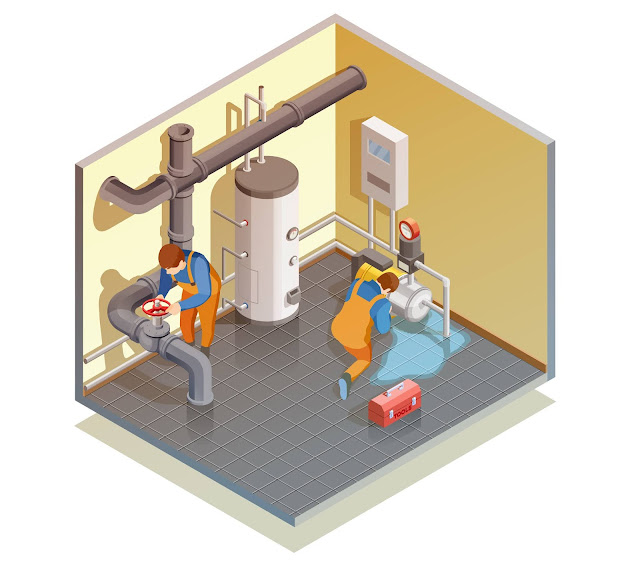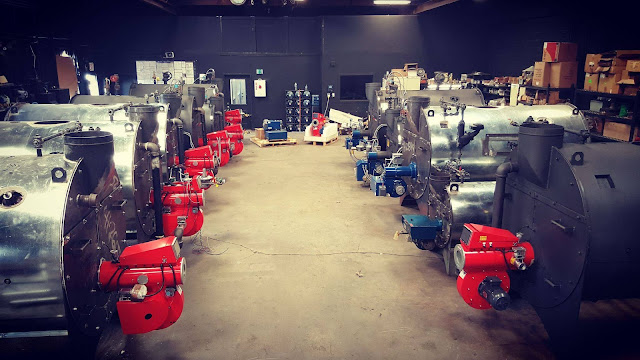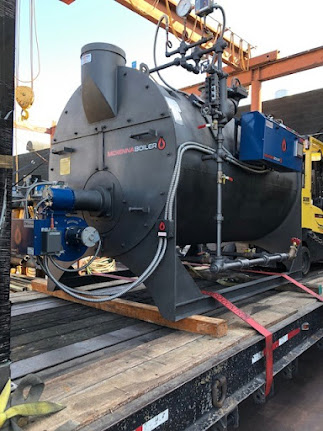Boiler Mechanical Services for Industrial Gas Hot Water Boiler
Before investing in an efficient boiler system for your factory or commercial building, it is prudent to do a meticulous study of the pros and cons of the various options available and choose wisely with complete consideration to specific business goals and needs. We've carefully decoded the different boiler options along with their specific features and performances to help you make an informed decision before purchasing a gas hot water boiler.
Gas boilers use natural gas as fuel to generate heat in large quantities of water to produce steam. The gas to be used as fuel is supplied through gas networks, but buildings not connected to one can still use gas boilers. These are the most commonly used boilers and are more popular than electric boiler systems.
Advantages and Disadvantages of Gas Boilers
Pros:
Due to easier access, gas can be supplied quickly and conveniently.
Gas, being cheaper than electricity in most cases, is a more cost-efficient choice for common usage.
A huge variety of gas boilers are available for users to choose from, making the range diverse.
Low NOx emission gas boilers are available as green alternatives to reduce carbon emissions and preserve our environment.
Cons:
Gas boilers usually comprise of large units that take up a lot of space.
These boilers are more prone to developing minor faults from time to time.
Regular service is needed for efficient functioning and manufacturer warranty often depends on timely service.
A slight chance of gas leakage is always there, creating a safety loophole.
Electric Boilers
Electric boilers solely operate on electricity to produce heat. There is no dependence on gas supply for heating water or supplying central heating. These are less common yet they do have several advantages over gas boilers.
Advantages and Disadvantages of Electric Boilers
Pros:
There is no risk of gas leakage, as there is no gas required for fuel. Hence carbon monoxide leakage being a safety hazard is ruled out.
These boilers use electricity and are much quieter than gas boilers. Loud noise production can be avoided.
They do not produce any carbon emissions and are environmentally friendly in that way.
They are less prone to developing faults and hence are easier to maintain.
Cons:
Electric boilers are mostly expensive compared to gas boilers.
Higher charges of electricity make them a less affordable option for everyday use.
Electricity generation puts a heavy burden on nature and hence these boilers are not eco-friendly in this specific regard.
They are unable to provide enough heating for large households, commercial purposes and multi-occupant houses.
Boiler Mechanical Services for All Boiler Types
Inspection of your boiler and the controls to make sure everything is working properly.
Check the boiler for current or potential leaks and/or damage due to corrosion.
Inspecting the main components beneath the casing.
Track the gas pressure.
Carry out a flue test to remove the threat of unsafe fumes/emissions.
Clean all parts if needed.
Put back the casing and seal it well.
Provide the user with a checklist to show the work carried out, highlight the safety level of your boiler and give recommendations.
For optimal performance throughout the winter months, it's crucial to get your boiler serviced by a professional boiler company routinely. This ensures that your boiler is safe to use, preventing any chances of gas leakage or other safety hazards. Boiler mechanical services also help in bringing down the utility costs as boilers aren't efficiently converting energy without proper maintenance and expert service. An annual boiler inspection is a must to identify and repair any faults and make your boiler more efficient.
Tip for a safe winter: Investing in a suitable boiler should be done wisely and it's imperative to get professional service from time to time. Hire expert mechanical services that will ensure that your system meets all necessary requirements and can adjust any components if needed.




Comments
Post a Comment